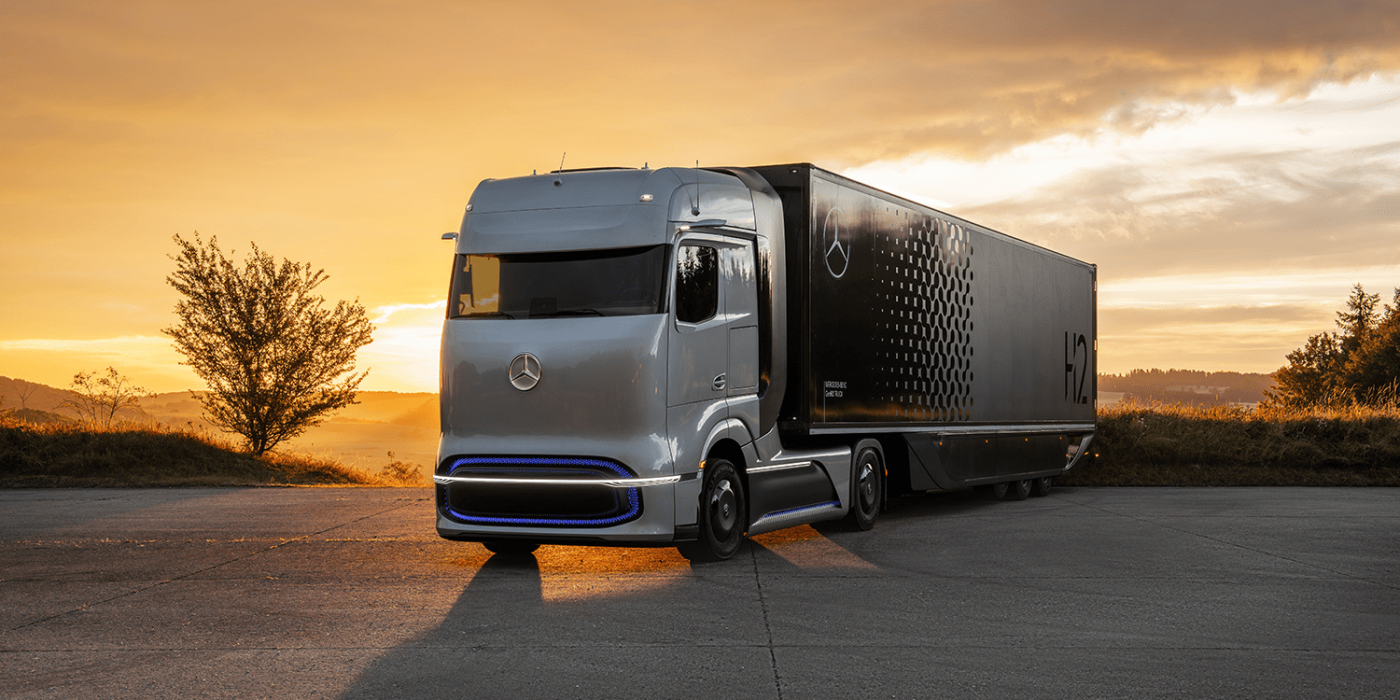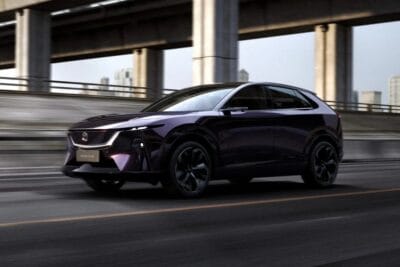H2Accelerate founded for H2 fuel cell trucks in Europe
A new common-interest alliance called H2Accelerate (H2A) is aiming to help hydrogen trucks achieve a breakthrough across Europe. The initiative is backed by Daimler Truck, Iveco, OMV, Shell and the Volvo Group. The partners estimate that nationwide introduction will take about a decade.
++ This article has been updated. Kindly continue reading below. ++
The quintet wants to put the first hydrogen trucks on the road with the help of customers who “commit to this technology at an early stage.” Initially, the trucks will operate in regional clusters and along European transport routes with high capacity utilisation and good hydrogen filling station supplies. Over the course of the decade, H2Accelerate then aims to link these clusters with each other, creating a Europe-wide network.
The alliance also lists initial concrete goals: for example, in the first phase, planning hundreds of hydrogen trucks and more than 20 high-capacity refuelling stations. In the second phase expected to start in the second half of the 2020s, the initiative is aiming for four-digit production figures, followed by a rapid increase in volume to over 10,000 H2 trucks. At the same time, Europe’s most important transport routes are to be covered with hydrogen filling stations.
The fixed targets also include the acquisition of public funds to finance early pre-series projects that are intended to “activate the market”. With this in mind, H2A plans to work with policymakers and regulators. The initiative says its aim is to create a favourable environment for the introduction of H2 transport.
Daimler, Iveco and Volvo are three truck manufacturers among the participating companies. Daimler Truck presented its FC concept GenH2 Truck in September 2020, which is supposed to be a series-production model for long-haul operations with ranges of up to 1,000 kilometres. Initial customer trials are scheduled for 2023. In November Daimler Truck and the Volvo Group already agreed to establish a joint venture that aims to develop, produce and market fuel cell systems ready for series production.
In June 2020, Daimler had already taken a preparatory organisational step toward the joint venture: In the newly founded Daimler Truck Fuel Cell GmbH & Co. KG, all of the Group’s fuel cell activities were bundled at that time, including the previous Mercedes-Benz Fuel Cell GmbH, which among other things developed the drive system for the Mercedes GLC F-Cell passenger car model. Volvo will acquire 50 per cent of the shares in Daimler Truck Fuel Cell GmbH & Co. KG for the sum of approximately 600 million euros. The transaction is expected to close in the first half of 2021.
Iveco is no newcomer to the H2 sector either: the company will become a contract manufacturer for the Nikola Tre truck. CNH Industrial and Nikola Motor announced their plans in February 2020. The fuel cell version of the truck is expected to be built in Ulm from 2023, the battery version from as early as 2021.
“The participant companies in H2Accelerate agree that hydrogen-powered trucks will be key for enabling CO2-neutral transportation in the future,” says Martin Daum, CEO of Daimler Truck AG. He said the unprecedented collaboration is an important milestone in creating and advancing necessary framework conditions for a broad sales market for hydrogen-based trucks. “It is also a call to action for policymakers, further players involved and society as a whole,” Daum said.
The companies involved believe that the introduction of H2 trucks in high volumes will see the emergence of new industry sectors. Keywords include CO2-free H2 production facilities, hydrogen distribution systems, a high-capacity filling station network for liquid and gaseous hydrogen, and truck production itself. H2A advocates “industry-wide synchronised investments in the 2020s” to drive the adoption of H2 trucks.
Here European companies and governments are a few steps behind their Japanese and South Korean counterparts. Hyundai has already deployed hundreds of fuel cell trucks on the European continent with accompanying infrastructure and business strategies, as well as a newly announced a new stand-alone brand called HTWO for fuel cell technology. Talking about producing H2 fuel cell trucks in four-digit figures, Hyundai just received an order to 4,000 fuel cell trucks to China by 2025. Toyota just opened a dedicated European business unit and have already started trials of light- and heavy-duty H2 trucks in North America and Japan. What both the European and Asian fuel cell vehicle manufacturers are clear about: This transformation requires cross-sector collaboration, governmental initiative and for potential competitors to collaborate on the hydrogen economy.
Update 29 September 2021
Linde has now joined as the seventh member of the H2Accelerate consortium, which aims to help hydrogen trucks achieve a breakthrough throughout Europe. The other members are Shell, OMV, TotalEnergies and the vehicle manufacturers Daimler, Volvo and Iveco. According to its own information, Linde has so far installed around 200 hydrogen filling stations worldwide.
“We have been in the hydrogen business for a long time and are committed to helping the world reach its climate targets by contributing with our knowledge, expertise and infrastructure to the development of the hydrogen economy,” said David Burns, VP Clean Energy Development, adding: “The task ahead of us is large and complex, as it is the environmental challenge that we currently face. The world needs to work together if it wants to come up with a timely solution to tackle climate change. Trucking is one of the sectors that can substantially reduce its emissions if switching from diesel to clean hydrogen.”
daimler.com, volvogroup.com, h2accelerate.eu (update)





0 Comments